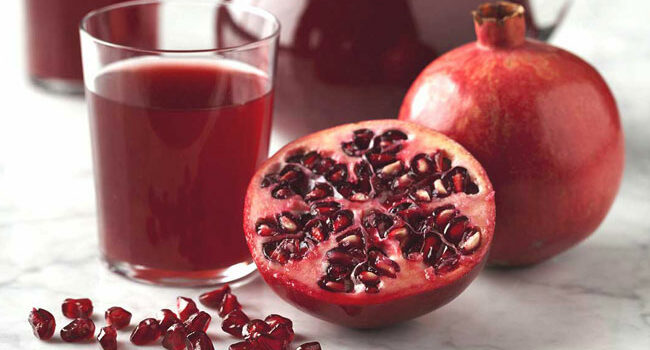
Broccoli is one of the top super foods that are pack with nutrients. It is rich in vitamin A, B, C, K, zinc, iron, calcium, magnesium and more.
It is also a good source of antioxidants, which help in preventing various diseases and keep you healthy. The antioxidants present in broccoli can reduce oxidative stress and prevent cell damage.
1. Rich in Antioxidants
Antioxidants are natural substances that can help your body deal with day-to-day damage. They also boost your immune system and reduce inflammation.
You can find antioxidants in many different foods, but some of the best sources are fruits and vegetables. They contain vitamin C and beta-carotene, which protect the cells in your body from free radicals that can cause a wide range of health problems.
Aside from these vitamins and minerals, fruits and vegetables also have other dietary compounds that act as antioxidants. These include flavonoids, polyphenols and other phytochemicals.
Several studies have shown that the antioxidant properties of fruits and vegetables can significantly reduce oxidative stress, a process that causes cell damage. Oxidative stress is link to many chronic diseases like heart disease, diabetes, cancer and Alzheimer’s disease.
Broccoli is one of the best sources of antioxidants in your diet. It has a high concentration of glucoraphanin and sulforaphane, which have been found to increase cellular antioxidant activity.
Besides broccoli, other antioxidant-rich foods include goji berries, wild blueberries, dark chocolate and pecans. These foods are rich in carotenoids, lutein and zeaxanthin, which can prevent aging, heart disease and eye disorders. They can also help ward off certain types of cancers.
2. Lowers Cholesterol Levels
Adding broccoli to your diet is an excellent way to lower cholesterol levels, which are associate with an increase risk of heart disease. The cruciferous vegetable is pack with vitamins, minerals and phytonutrients.
Broccoli is an excellent source of soluble fiber, タダライズ can help reduce the absorption of cholesterol into your bloodstream. It also is rich in folate, potassium and manganese.
Eating a healthy, well-balance diet is the best way to lower your total cholesterol level and lower your risk of developing heart disease. You can do this by eating a variety of fruits and vegetables, whole grains, nuts and other healthy foods that have been shown to lower cholesterol levels.
You can lower your cholesterol even more by reducing your saturate fat consumption, especially the fats found in red meat and full-fat dairy products. Saturate fats can raise bad LDL cholesterol levels, while lowering good HDL cholesterol.
If you have high cholesterol, talk to your doctor about a lifestyle plan that may help you improve your health and lower your cholesterol levels. These plans include dietary changes, exercise and medication if needed.
If your doctor recommends medications, you can increase their effectiveness by taking them as prescribe along with making other lifestyle changes. You can also try natural health products or supplements, which have been shown to lower cholesterol levels and are safe for most people.
3. Strengthens Immune System
The immune system is a complex organ that requires a variety of nutrients to function properly. Broccoli is a great source of vitamin C, which helps boost the immune system. It also contains flavonoids, which help recycle vitamin C more efficiently. It is also enrich with carotenoids like lutein and zeaxanthin, which are also good for the eyes.
It is also a great source of antioxidants, including glutathione. Genericmeds Treatment help neutralize harmful free radicals that are known to cause diseases like cancer.
Broccoli is also rich in a number of vitamins and minerals, including calcium, iron, zinc and potassium. It is also a good source of fiber, which is important for digestive health.
Researchers from UCLA have discover that broccoli’s nutrient, a compound call sulforaphane, can reverse the decline in cellular immune function that occurs with age. This is thanks to sulforaphane’s interaction with Nrf2, a protein that regulates the body’s antioxidant response.
Broccoli also boasts a number of other health benefits, ranging from eye-healthy lutein and zeaxanthin to antioxidant-rich glucobrassicin. In addition to the aforemention health benefits, broccoli is also an excellent source of vitamin K, which is important for bone health and prevention of osteoporosis.
4. Lowers Inflammation Levels
Broccoli contains sulforaphane, an antioxidant that helps to lower inflammation levels and prevent heart disease. It also contains vitamin C, which is an essential nutrient that promotes immune function and heals damage cells throughout the body.
Broccoli is also a great source of fiber and nutrients that support digestive health. Good bowel function and a healthy community of gut bacteria are essential for overall health, according to the National Institutes of Health.
A study in mice on a broccoli diet show that it reduce inflammation and improve bowel bacteria, which can help reduce the risk of chronic illness. In addition, broccoli contains a range of B vitamins that can help regulate or reduce excessive homocysteine, an amino acid that can increase the risk of heart disease.
Broccoli is also rich in a compound call glucoraphanin, which converts into the bioactive anti-cancer compounds sulforaphane and isothiocyanates. These compounds halt cancerous growth by triggering genetic changes in the body. They can also deactivate free radicals and carcinogens in the body.
5. Lowers Blood Sugar Levels
A diet rich in vegetables and fruits, such as broccoli, can help control blood sugar levels. Broccoli is low in calories and has only about 1 gram of fat per cup. It contains fiber, which helps in stabilizing your blood sugar.
It is also important to eat less carbohydrates, such as sweets, breads and pastas. Consuming too many carbohydrates can cause blood sugar to rise, says Crandall Snyder. She recommends sticking to a healthy, well-balance diet with plenty of fresh vegetables and whole grains.
She also advises drinking water to avoid dehydration, which can cause your blood sugar levels to spike. This is because your body needs more water than usual to excrete the excess glucose from your blood.
Exercise is also important for lowering blood sugar levels. It can reduce the amount of insulin need to breakdown carbs and increase your energy level.
If you have type 1 diabetes, your doctor may prescribe a short-acting injectable medicine call rapid-acting insulin (RAPID-INDU). It is use to treat high blood sugar, also known as hyperglycemia, which can occur during and after eating.
It is important to work with your doctor to set a target blood sugar range for you. Keeping your blood sugar in this range can lower your risk of eye disease, kidney disease and nerve problems.
6. Lowers Blood Pressure Levels
Getting regular exercise, eating healthier foods and avoiding alcohol can help lower your blood pressure levels. These lifestyle changes can also reduce your risk of developing heart disease, stroke or kidney disease.
High blood pressure, also call hypertension, is a serious health problem that affects nearly half of adults. It can lead to a variety of serious problems, including kidney disease, heart disease, stroke, and even death.
The good news is that most people can lower their blood pressure with lifestyle changes and medications. In addition to making healthy choices, your doctor may prescribe anti-hypertensive medicines, such as ACE inhibitors, angiotensin-receptor blockers, beta blockers and diuretics.
Researchers recently discover that a systolic blood pressure target of 120 mmHg or lower significantly reduce the risk of cardiovascular diseases and kidney disease in adults. The findings came from the SPRINT (Systolic Blood Pressure Intervention Trial) study, a large clinical trial that test whether intensive blood pressure management would decrease the risk of these conditions.
The American Heart Association recommends that a person’s systolic blood pressure should be below 140 mmHg for healthy adults and 130 mmHg or lower for those with certain risk factors for cardiovascular disease, such as age, gender, and diabetes. This goal is consider the gold standard of preventing and treating high blood pressure.
7. Helps in Weight Loss
Adding broccoli to your diet can help you maintain a healthy weight. This vegetable is low in calories and fat, and contains dietary fiber that helps you feel full.
It’s also an excellent source of vitamin C, which promotes fat metabolism and boosts immunity. Additionally, it is rich in potassium, which is a vital mineral for regulating blood pressure and preventing heart disease.
Broccoli is also an effective cancer-fighting food, thanks to a wide range of antioxidants that can neutralize carcinogens and stop the spread of cancer cells. Sulforaphane, a key compound in broccoli, is known to reduce the risk of prostate, breast, colorectal, and gastric cancers.
A recent study found that men who ate three or more servings of cruciferous vegetables per day reduce their prostate cancer risk by 41%. Moreover, sulforaphane can even help prevent lung cancer.
Another benefit of broccoli is that it improves cardiovascular health by reducing inflammation, lowering blood pressure, and thinning your blood. These anti-inflammatory properties can also help prevent plaque buildup in arteries, which is a common cause of heart attack and stroke.
In addition, broccoli’s high nutrient content helps prevent bone loss and strengthen bones. The vitamin K, potassium, magnesium, and phosphorus in this vegetable are essential for proper bone development and maintenance.












